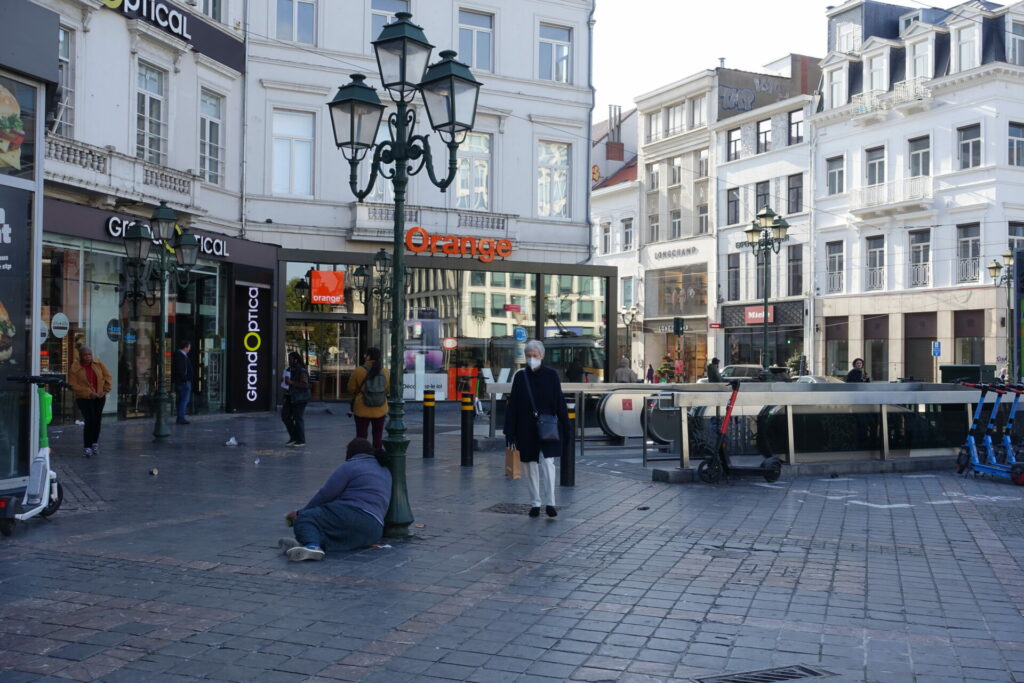Basic income — giving an unconditioned salary to all citizens to keep them out of poverty — has been hailed as a solution for reducing spiralling inequality. However, one Belgian study has found it is not quite that simple.
In Belgium, almost 20% of the population lives in households that are either poor, financially insecure, or in some way materially or socially deprived. In the persistence of such poverty in welfare states, providing a direct cash benefit to people as part of the basic income (BI) system seems like a logical and beneficial way to combat poverty.
The system, regarded as a radical change of approach, sees the government provide a guaranteed income to all citizens regardless of their employment status or income — an essential feature of basic income is that it is universal, therefore rich families are also entitled to it — to support their basic needs.
Proponents of the system, which provides cash on an individual basis and without an employment requirement, believe that it will combat poverty which, in turn, will encourage entrepreneurship, as well as greatly reduce administrative complexity and cost. Some studies have shown that even income guarantees of small amounts can reduce poverty by 40%.
However, researchers at the University of Antwerp (UAntwerpen) have now argued that the idea is not so basic after all, debunking the proclaimed simplicity. They added that, even when the amount given is set at a high level, it is unlikely to be a "miracle remedy for persistent poverty."
'Treacherous iceberg'
Using simulations to compare various BI models and their effects in Belgium and The Netherlands, the researchers found that the potential poverty-reducing impact of BI strongly depends on exactly how and where it is implemented, explaining it has "something of a treacherous iceberg."
For example, if the basic income has the same level as the poverty line (€1,230 in Belgium, €1,235 in the Netherlands), the number of poor people in Belgium would decrease by only a third and in the Netherlands by no more than a quarter, while the financial cost of such a BI reform would equal to almost 90% of the total government tax revenue or a quarter of GDP.
"As such, it is doubtful whether a full BI scheme is the most cost-efficient way of addressing poverty and inequality. A lower, partial BI seems to make more sense than a fully-fledged one," researchers argued.
In contrast to common claims, researchers found it is not simply the case that the higher the BI the “better." While this would decrease the poverty risk and would make the rich richer, but increase the poverty gap, pushing the most vulnerable households deeper into poverty.
Meanwhile, an increase in poverty can occur, for example, if social benefits are cut too hard to pay for basic income, as this sees resources being taken away from the lower strata of society to distribute them to everyone.
Related News
- Brussels elderly population more at risk of poverty, vulnerability deepening over time
- Insecurity is the problem, universal basic income part of the solution
- Citizen’s Income: Will southern Italy spoil the right's election hopes?
Remarkably, a somewhat lower basic income reduces poverty the most, but only if it is mainly financed by removing tax breaks.
These various outcomes highlight that the exact specification of a BI matters a lot, including what parts of the existing tax-benefit system are maintained and whether other social benefits are affected, overall highlighting that implementing a BI is "far more complicated than many people, especially BI advocates, seem to realise." Each country would also need its own specific solutions.
"Below that gleaming, appealing tip of simplicity, there is a murky mass of complex choices to be made and interactions to be accounted for. What you get may be very different from what you wish for," the researchers concluded.
Other countries have tested other more targeted forms basic income, such as in Italy, who has a conditional and non-individual guaranteed minimum income – the Citizen Income – which, according to Italy's Office of National Statistics, has lifted one million Italians out of poverty.

